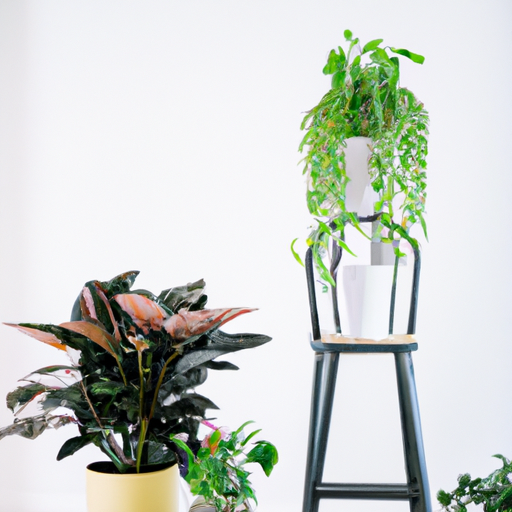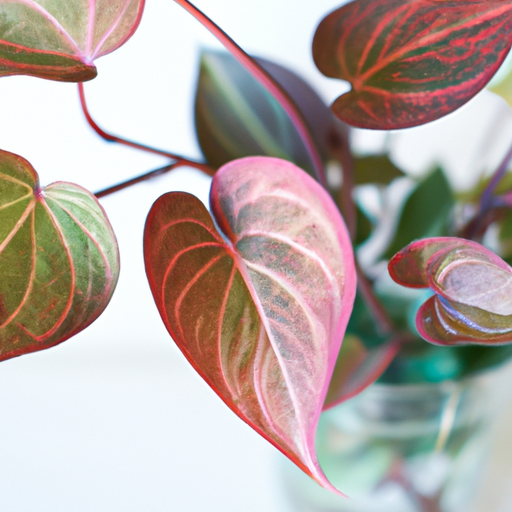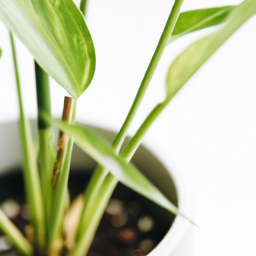
Are you looking to brighten up your workspace and improve your productivity at the same time? Adding some office plants to your desk or office space might be just the solution you need. Not only do office plants add a touch of greenery to your surroundings, but they also have numerous benefits for your mental and physical well-being. In this blog post, we will explore the many advantages of incorporating office plants into your work environment and provide some tips on how to care for them effectively. So, if you’re ready to bring a little bit of nature into your office, keep reading to learn more about the wonders of office plants.
Benefits of Having Office Plants
Improved Air Quality
One of the most significant benefits of having office plants is the improvement in air quality. Plants are natural air purifiers, absorbing carbon dioxide and releasing oxygen through photosynthesis. They also help to remove toxins and pollutants from the air, such as formaldehyde and benzene, which are commonly found in office environments. By having plants in your office, you can create a healthier and more oxygen-rich environment for yourself and your colleagues.
In addition to improving air quality, office plants can also help to regulate humidity levels. Plants release water vapor through a process called transpiration, which can help to increase humidity in dry office environments. This can be particularly beneficial during the winter months when indoor heating can cause the air to become dry and uncomfortable.
Overall, having office plants can help to create a more pleasant and healthier workspace for everyone. By incorporating plants into your office design, you can enjoy cleaner air and a more comfortable environment that promotes productivity and well-being.
Reduced Stress and Boosted Productivity
Another benefit of having office plants is their ability to reduce stress and boost productivity. Studies have shown that being around plants can have a calming effect on individuals, helping to reduce feelings of anxiety and stress. In a fast-paced office environment, having plants can provide a sense of tranquility and relaxation, creating a more peaceful atmosphere for employees.
Furthermore, office plants have been found to increase productivity and creativity. The presence of plants in the workplace has been linked to improved concentration, memory retention, and problem-solving skills. By incorporating plants into your office space, you can create a more stimulating environment that encourages innovation and efficiency.
Incorporating office plants into your workspace can have a positive impact on both your mental well-being and your work performance. By creating a more relaxed and inspiring atmosphere, plants can help you to feel more focused, motivated, and productive throughout the day.
Enhanced Aesthetic Appeal
Office plants not only offer health and productivity benefits but also enhance the aesthetic appeal of your workspace. Plants can add a touch of nature and color to an otherwise sterile office environment, creating a more inviting and visually pleasing atmosphere. Whether you choose to place plants on desks, shelves, or hanging from the ceiling, they can help to soften the look of your office and make it feel more welcoming.
In addition to improving the overall appearance of your workspace, office plants can also help to create a sense of connection to the natural world. Being surrounded by greenery can evoke feelings of serenity and tranquility, helping to reduce feelings of stress and fatigue. By incorporating plants into your office design, you can create a more harmonious and balanced environment that promotes well-being and creativity.
Overall, office plants offer a range of benefits that can enhance both your physical and mental well-being. By bringing nature indoors, you can enjoy cleaner air, reduced stress, increased productivity, and a more visually appealing workspace. Consider adding some plants to your office today and experience the positive impact they can have on your work life.
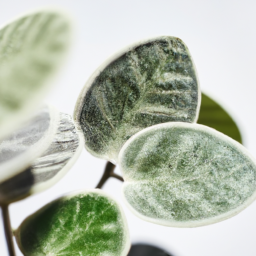
Best Types of Plants for the Office Environment
Benefits of Having Plants in the Office
Having plants in the office environment can provide numerous benefits for both employees and the overall atmosphere of the workspace. Plants have been shown to improve air quality by reducing pollutants and increasing oxygen levels, which can lead to better concentration and productivity among employees. In addition, plants can help reduce stress levels and create a more relaxed and pleasant work environment. Studies have also shown that having plants in the office can help reduce noise levels and create a more peaceful atmosphere.
Furthermore, plants can help improve the aesthetics of the office space, making it more inviting and visually appealing. They can add a pop of color and natural beauty to an otherwise sterile environment. Additionally, caring for plants can help foster a sense of responsibility and nurturing among employees, which can have a positive impact on morale and teamwork. Overall, having plants in the office can create a more positive and productive work environment for everyone.
Best Types of Plants for the Office
When choosing plants for the office environment, it is important to consider factors such as lighting, space, and maintenance requirements. Some of the best types of plants for the office include:
1. Snake Plant (Sansevieria): Snake plants are easy to care for and can thrive in low light conditions, making them perfect for offices with limited natural light. They are also known for their air-purifying properties, making them a great choice for improving indoor air quality.
2. Pothos (Epipremnum aureum): Pothos plants are low-maintenance and can tolerate a variety of light conditions, making them versatile for different office environments. They have trailing vines that can add a touch of greenery to desks or shelves.
3. Spider Plant (Chlorophytum comosum): Spider plants are known for their air-purifying abilities and can thrive in indirect sunlight. They are easy to care for and can help add a pop of green to any office space.
4. Peace Lily (Spathiphyllum): Peace lilies are great for offices with low light conditions and are known for their ability to remove toxins from the air. They also produce beautiful white flowers, adding a touch of elegance to the workspace.
5. ZZ Plant (Zamioculcas zamiifolia): ZZ plants are extremely low-maintenance and can thrive in low light conditions. They have shiny, dark green leaves that can add a modern touch to any office space.
Overall, these plants are great options for adding greenery to the office environment while requiring minimal care and maintenance. They can help improve air quality, reduce stress, and create a more pleasant and inviting workspace for employees. Consider incorporating these plants into your office space to reap the numerous benefits they provide.
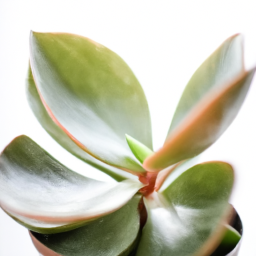
Tips for Caring for Office Plants
Choosing the Right Plants
When selecting plants for your office, it’s important to consider the lighting conditions and temperature of the space. Some plants thrive in low light environments, while others require bright, indirect sunlight. Popular office plants that do well in low light include pothos, snake plants, and peace lilies. If your office has ample natural light, consider plants like succulents, spider plants, and rubber trees.
Another factor to consider when choosing office plants is the level of maintenance they require. If you’re new to plant care or have a busy schedule, opt for low-maintenance plants like ZZ plants, spider plants, or snake plants. These plants are forgiving of occasional neglect and can thrive in less-than-ideal conditions.
Lastly, consider the size of the plants and their growth habits. Choose plants that will fit comfortably in your office space and won’t outgrow their containers too quickly. Some plants, like bamboo palms and peace lilies, can grow quite large and may require regular pruning to keep them in check.
Proper Watering and Feeding
Proper watering is essential for the health of your office plants. Overwatering can lead to root rot, while underwatering can cause wilting and leaf drop. The key is to water your plants consistently, allowing the soil to dry out slightly between waterings. Use a moisture meter or simply stick your finger into the soil to determine when it’s time to water.
When watering your plants, be sure to use room-temperature water and avoid getting the leaves wet, as this can lead to fungal diseases. If your plants are in containers without drainage holes, be extra cautious not to overwater, as excess moisture can quickly build up and cause root rot.
In addition to proper watering, it’s important to feed your office plants regularly to ensure they have the nutrients they need to thrive. Use a balanced, water-soluble fertilizer once a month during the growing season, following the instructions on the package for dilution and application.
Maintaining Healthy Plants
In addition to proper watering and feeding, there are a few other steps you can take to ensure your office plants stay healthy and happy. Regularly dust the leaves of your plants to keep them free of debris and allow them to photosynthesize efficiently. Prune dead or yellowing leaves to encourage new growth and maintain the overall appearance of the plant.
Monitor your plants for signs of pests or disease, such as yellowing leaves, sticky residue, or webbing. If you notice any issues, take action promptly to prevent them from spreading to other plants. You can use natural remedies like neem oil or insecticidal soap to treat common pests like spider mites or aphids.
Lastly, rotate your plants occasionally to ensure they receive even light exposure on all sides. This will help prevent leggy growth and promote a more balanced, symmetrical appearance. With proper care and attention, your office plants can bring beauty and life to your workspace for years to come.
In a Nutshell
Adding plants to your office space can have numerous benefits for both your physical and mental well-being. Not only do they add a pop of color and life to your workspace, but they also help purify the air by removing toxins and increasing oxygen levels. Studies have shown that having plants in your office can improve concentration, productivity, and overall mood. Plus, caring for plants can be a great stress-reliever and provide a sense of accomplishment as you watch them grow and thrive.
When choosing plants for your office, consider factors such as the amount of natural light available, the level of maintenance required, and any potential allergies. Some low-maintenance options that thrive in indoor environments include pothos, snake plants, and succulents. Remember to water your plants regularly, provide adequate sunlight, and occasionally dust off their leaves to keep them healthy and happy. So why not bring a little piece of nature into your office and reap the benefits of having some greenery around you while you work?
FAQ Compilation:
Q1. What are the benefits of having office plants?
A1. Office plants have numerous benefits, including improving air quality, reducing stress levels, increasing productivity, and adding a touch of nature to the workspace.
Q2. What are some low-maintenance office plants for beginners?
A2. Some low-maintenance office plants that are perfect for beginners include snake plants, pothos, succulents, and peace lilies. These plants require minimal care and can thrive in indoor environments.
Q3. How often should I water my office plants?
A3. The frequency of watering office plants depends on the type of plant and the environment it is in. Generally, it is recommended to water office plants once a week or when the top inch of soil feels dry to the touch.
Q4. Can office plants help reduce noise in the workspace?
A4. Yes, certain office plants, such as rubber plants and fiddle leaf figs, can help absorb sound and reduce noise levels in the workspace. Placing these plants strategically can help create a more peaceful and productive work environment.
Q5. What are some tips for caring for office plants?
A5. Some tips for caring for office plants include providing adequate sunlight, avoiding overwatering, dusting the leaves regularly, and repotting when necessary. It is also important to monitor the humidity levels in the workspace to ensure the plants thrive.
Emily Bloomfield is an interior designer and horticulturist specializing in incorporating indoor plants into interior spaces. With a background in both design and plant science, Emily offers a unique perspective on creating harmonious living environments through the synergy of greenery and aesthetics. Her creative ideas and innovative solutions make her a sought-after authority in the field.

